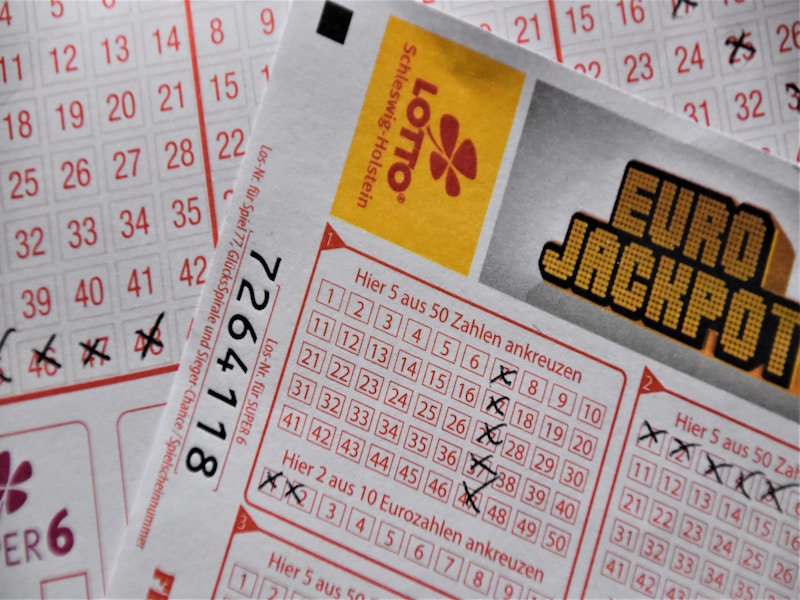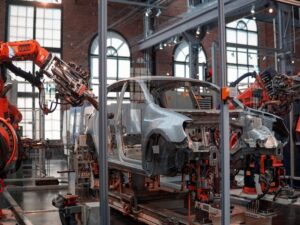The lottery is a product of a winner take all society
No more money troubles. No more worrying about bills. No more getting up early for a job that offers little meaning. Freedom. It’s little wonder people take such comfort in fantasising about winning the lottery. At face value, the lottery appears to be harmless fun, and yet it’s a microcosm of a failed society. In society, inequality is increasing because the rich skew the game in their favour so that a disproportionate amount of the wealth, we all contribute to creating, is funnelled into their pockets. Just like society, while everyone can play the game and contributes to the prize fund, the winner takes all.
That fact appears to be fair game, though, because success in modern society is encapsulated by the American Dream. A belief that has become entrenched in the American national identity is that in the land of the free, individuals can go from having nothing to having everything. Having everything centres on becoming rich. That wealth grants you access to the land of plenty, where all your decadent dreams become reality. The dream, or chasing it, is interwoven in Hollywood movies, TV programmes, songs and advertising. And with globalisation, it’s a dream that has gone global.
What feeds this dream, and people’s hopes of making it, is that in a market economy, everyone has the same opportunities to enhance their social status. This is because the market (so the argument goes) is the root of social prosperity. With enough grit and determination, anyone can achieve the American Dream because the market provides unlimited possibilities to succeed. What gets lost in this argument is that the market also provides unlimited possibilities to fail. It’s a system of extremes; succeed, and you’ll shoot to the stars; fail, and you’ll sink into oblivion because there is no safety net to protect you.
That safety net should be government welfare, which guarantees every citizen a certain living standard. But in a market economy, the government is considered some incompetent meddling force that works to hamper the smooth workings of the market. And so, the less influence government has over the economy and society, the better. The issue with this belief is that far from the market creating shared prosperity, millions of people are living in poverty.
13.4 percent of households in the UK (3.8 million) can’t afford to keep their homes warm in winter. In the European Union, nearly 9 percent of people in employment are at risk of poverty. This helps explain why 1.5 million Germans are supported by food banks. Meanwhile, 40 percent of respondents to a recent Gallup poll in America say they are either running into debt or barely making ends meet. An estimated 12 million Americans use high-interest payday loans. 70 percent of people who get these loans use them to pay for basic expenses like rent and utilities.
It doesn’t sound like the market is providing for all. With so many barely making ends meet, it’s little wonder that fantasies about winning the lottery are so comforting. For millions of people, the only feasible way out of a life of struggle is by playing a game with odds of millions to one. The lottery, or to be precise, the dream of winning it, is a free ticket into the promised land, an escape from a life of worry, anxiety and stress.
Imagine social success didn’t revolve around being richer than everyone else, but revolved around, say, maximising well-being for all. In that kind of society, rather than a celebration of inequality by venerating billionaires, wealth inequality would be considered a chronic social failure. The lottery would appear to be a ridiculous aberration in a society where maximising social well-being for all was the priority.
It’s hard to argue that everyone shouldn’t live a life worth living. No one should have to struggle to make ends meet or constantly stress about paying the bills. They certainly shouldn’t have to be dreaming of winning the lottery as the only viable way to shoot to the stars. The thing is, the current state of affairs works rather nicely for the winners. They can justify maintaining the status quo by arguing it’s not the market’s fault so many people are living in poverty, it’s their own.
As long as we all partake in a rat race where having more than everyone else is the aim of the game, we’ll continue seeing mutual unhappiness. What makes our social norms even more bizarre is that consumerism has led to the economy exploding in size. We’re now in a state of ecological overshoot where more of the same will just lead to the economy getting larger, which will lead to increasing environmental impacts. On a social level, this unsavoury state of affairs could, in theory, be maintained. On an environmental level, it’s a recipe for disaster because it’s only a matter of time before overshoot translates into some pretty nasty consequences, the mother of all consequences being social collapse. So would the lottery be part of a sustainable society? Absolutely not. If anything, it’s a symbol of a society that’s decaying from the inside out.



